Search
Did you mean: Science?
Search Results

Definition
Egyptian Faience
Egyptian faience is a glassy substance manufactured expertly by the ancient Egyptians. The process was first developed in Mesopotamia, first at Ur and later at Babylon, with significant results but faience production reached its height of...
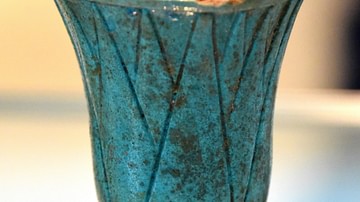
Image
Faience Drinking Cup from the 18th Dynasty
This is a faience (bluish-green) drinking cup. The cup's exterior surface was elaborated with incised decoration representing lotus flower petals. From Egypt. New Kingdom, 18th Dynasty, 1543-1292 BCE. (The British Museum, London)
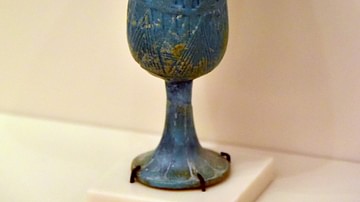
Image
Faience Cup of Shoshenq
Faience cup of Shoshenq with a representation of different deities. From Saqqara, Egypt. Third Intermediate Period, 22nd (Libyan or Bubastite) Dynasty, 944-716 BCE. It is on display at the Neues Museum, Berlin, Germany.
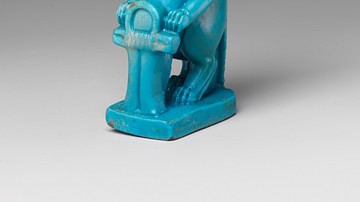
Image
Faience Taweret Statue
A blue faience statue of the Egyptian goddess Taweret. 332-30 BCE. Near Qena, Egypt. (Metropolitan Museum of Art)
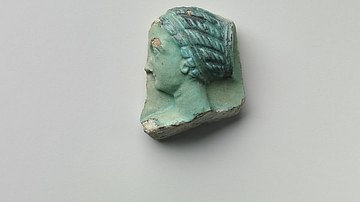
Image
Faience Glass Vase Portraying Arsinöe II
This fragment of blue faience glass came from a kind of libation vessel known as "oinochoai" which were used in festivals honouring the deified Ptolemaic queens. The figure portrayed is Arsinöe II who wears her hair in the "melon-coiffure"...
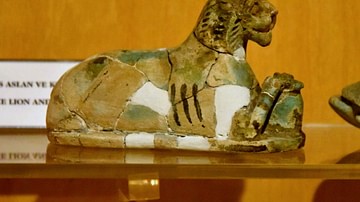
Image
Faience Lion from Megiddo
A statuette of a lion. Faience. Early Iron Age, 1200-900 BCE. From Tel Megiddo, in modern-day Israel. (Museum of Archaeology, Istanbul, Turkey).
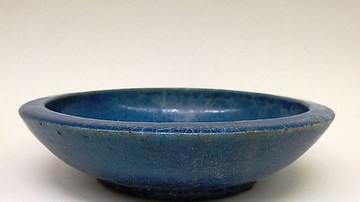
Image
Ptolemaic Blue Faience Bowl
This blue bowl is an excellent example of Egyptian faience ware, and why it was so highly regarded in the ancient Mediterranean. Ancient Egyptian artisans had been producing high-quality faience for millennia by the time this bowl was produced...
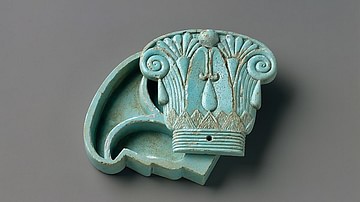
Image
Egyptian Faience Capital-shaped Cosmetic Box
This blue faience box is beautifully crafted in the shape of a Late Period column capital and has been dated to sometime between 664-300 BCE. It once held cosmetic ointments and such cosmetic boxes are well attested to in ancient Egypt. (Metropolitan...

Definition
Persian Seven-Colored Tiles
Persian Haft Rang tiles, also known as seven-colored tiles, are highly decorative glazed tiles used to adorn the exteriors and interiors of both secular and religious buildings. The tiles first came to prominence from the 15th century and...

Definition
Phoenicia
Phoenicia was an ancient civilization composed of independent city-states located along the coast of the Mediterranean Sea stretching through what is now Syria, Lebanon and northern Israel. The Phoenicians were a great maritime people, known...